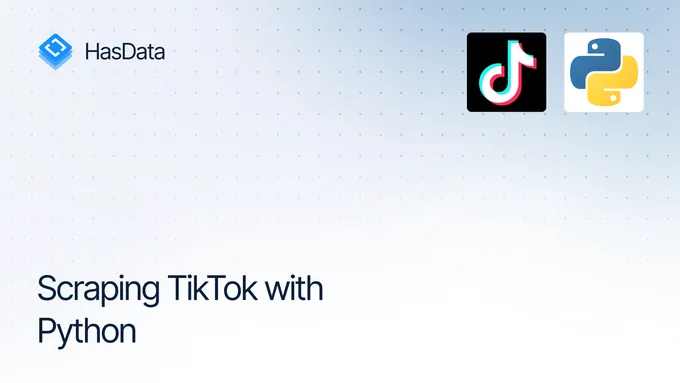How Job Scraping is Transforming Recruitment Strategies
If you’re navigating the online job market or aiming to streamline your hiring process, job scraping — a method of gathering job postings from across the internet — is your go-to resource. This article explores job scraping techniques, examines its pivotal role for both job seekers and employers, and outlines tools that drive this data-centric approach to employment.
Key Takeaways
- Job scraping is an automated process that collects job postings from various online platforms, providing structured datasets for job seekers and employers, and enhancing recruitment efficiency through data-driven insights.
- Advanced tools and technologies like Python libraries and web scraper APIs simplify job scraping while offering customization options, but businesses must weigh the cost and maintenance of custom solutions against pre-built scrapers.
- Job scraping faces challenges such as anti-scraping measures from job boards and the importance of scraping ethically and legally, emphasizing the need for transparency, adherence to terms of service, and legal regulations to avoid potential penalties.
Unlocking the Potential of Job Scraping
Job scraping extends beyond the mere accumulation of job postings. It uncovers a myriad of insights and opportunities. For job seekers, it offers a window into the job description and job title, revealing the requirements and qualifications sought by companies. For employers, it opens up a larger pool of quality applicants, as well as providing access to potential job opening information.
In essence, job scraping is a win-win, streamlining the laborious task of sifting through job listings and making the recruitment process more efficient and effective.
What Is Job Scraping?
Job scraping is the automated collection of job postings from various online platforms such as job boards and company career pages. It extracts critical details such as job titles, descriptions, and company information, providing a structured dataset. The wealth of data fetched from various sources, including large job boards like Monster, Glassdoor, or Indeed, personalized job aggregator websites, and niche market job portals, creates a comprehensive view of the job market. By using advanced technology to scrape job postings, job seekers and employers can access valuable information to make informed decisions.
Benefits of Job Scraping

Job scraping serves as more than a process. It opens the door to numerous benefits such as:
- Aggregating job listings;
- Saving time;
- Enhancing job matching;
- Providing real-time updates;
- Enabling competitive analysis;
- Improving recruiting efforts.
For Recruiters and Businesses
Utilizing job scraping technologies enhances the efficiency of recruitment by automating the collection of a wide array of job postings. This process ensures businesses access a comprehensive talent pool, essential for filling roles with the best candidates. The data-driven approach also aids in understanding market trends, allowing companies to align their offerings with current demands and to benchmark compensation effectively. This streamlined workflow leads to significant time savings and improved decision-making in talent acquisition.
For Job Seekers
Job scraping technologies open doors to a broader spectrum of employment opportunities, making it easier for individuals to find roles that match their skills and career aspirations. By aggregating listings from multiple sources, seekers gain insights into the latest openings and industry trends, enhancing their ability to make informed decisions about their career paths. This accessibility ensures that candidates are well-informed about the opportunities available and can apply to a wider range of positions that align with their qualifications and interests.
The benefits are manifold, and they are transforming the way we perceive and approach the job market.
Each instance of scraping reveals fresh opportunities and insights, catalyzing strategic decisions and promoting success.
The Mechanism Behind Job Scraping
At the heart of job scraping lies a powerful mechanism that leverages web crawlers and automated software programs. These tools visit websites, extract job listings, and compile them into a structured dataset. Third-party APIs and web scraping providers manage the entire process, delivering data in a structured format ready for analysis.
Developers can also create custom web scrapers to extract, parse, and store data in a desired format. While scraping company career sections is generally straightforward, it requires setting up a crawler for each individual company.
The Role of Job Scraping in Modern Recruitment
Job scraping acts as a linchpin in contemporary recruitment procedures. By aggregating job listings from various platforms into one centralized location, it eases the search process for recruiters and job seekers alike. But its role goes beyond simplification. It provides valuable insights for job market analysis, enhancing decision-making for recruiters.
Given the fluidity and volume of job data across the internet, job scraping has become a prevalent method for efficient data acquisition and management. With job scraping, modern recruitment becomes data-driven, efficient, and strategic.
The Tools and Technologies Powering Job Scraping
A diverse range of tools and technologies energize job scraping, intended to optimize and automate the procedure. Companies can opt for using a job web scraping tool, hiring a web scraping service, or setting up an in-house web scraping system.
Python, for instance, is a popular language for scraping job postings due to its powerful scraping libraries. There are also web scraper APIs that offer free trials, allowing users to test the service before committing. Ultimately, the choice of tool or technology depends on the specific needs and resources of the company.

In-House Scraper Development
Building and maintaining an in-house scraper entails significant costs, particularly if a company lacks a dedicated development and data analysis team. However, it offers unparalleled adaptability and control over the scraping infrastructure.
Pros:
- Greater adaptability: Tailor a solution to meet specific project demands.
- Full control: Maintain autonomy over the scraping infrastructure.
Cons:
- Resource-intensive: Requires substantial commitment of resources for development and maintenance.
Pre-Built Job Scrapers
Opting for a pre-built scraper tool can reduce costs associated with development and maintenance, albeit at the expense of relinquishing some control over the scraping process.
Pros:
- Cost-effective: Minimize development and maintenance expenses.
- Scalability: Easily expand the scope of scraping operations.
Cons
- Limited control: Sacrifice some degree of control over the scraping tool.
Purchasing Job Databases
Acquiring pre-scraped job datasets from reputable data companies offers convenience, but it comes with limitations in terms of data acquisition control.
Pros:
- Convenience: Obtain job data without the need for development resources.
- Accessibility: Access pre-scraped datasets readily available from reliable providers.
Cons:
- Lack of control: Depend on external sources for data acquisition.
- Potential for outdated data: Risk receiving datasets containing stale information.
When considering these options, it’s essential to prioritize reliability and freshness of data. While building an in-house scraper offers maximum control, it may not always be the most practical or cost-effective solution. Likewise, purchasing pre-scraped datasets provides convenience but may entail compromises in terms of data control. Ultimately, businesses should evaluate their specific needs and resources to determine the most suitable approach for job scraping.
Harnessing Job Data for Competitive Advantage
Job data goes beyond being a mere compilation of job postings - it serves as a strategic asset that can be utilized for gaining a competitive edge. By analyzing labor market trends, strategic recruitment, and conducting market research, businesses can glean insights that fuel growth and success. They can access a comprehensive pool of candidate profiles and listings, which informs their talent acquisition strategies using job posting data.
Additionally, job scraping provides companies with data on industry-specific job trends, salary benchmarks, and in-demand skills, assisting them in refining their recruitment procedures.
Analyzing Labor Market Trends Through Job Data
Analyzing labor market trends through job data can reveal insights into job market dynamics, highlighting demand for various skills, emergent job roles, and salary expectations. This enables businesses to observe competitors’ hiring, uncovering growth strategies and market positioning insights.
Additionally, job scraping facilitates market salary research by collecting salary data from job postings, helping companies offer competitive wages. Ultimately, this analysis helps recruiters anticipate and forecast the demand for specific skills, shaping their recruitment strategies accordingly.
Leveraging Job Scraping for Strategic Recruitment
Job scraping facilitates strategic recruitment by effectively matching open positions with apt candidates. It provides a complete overview of available listings on multiple job boards, making the recruitment process smoother and more efficient. Companies can use job data to design targeted recruitment campaigns, allowing them to effectively connect with qualified candidates.
Furthermore, job scraping offers several benefits for companies:
- It enables companies to monitor and adopt compensation practices that are compliant with industry standards.
- It enriches the talent pool by providing a comprehensive view of available job opportunities.
- It enhances HR processes by automating the collection and analysis of job data.
- It drives better hiring decisions in a competitive market by providing valuable insights into job trends and candidate preferences.
Job Scraping as a Market Research Tool
Job scraping serves not only as a recruitment instrument but also as a powerful market research mechanism. By scraping job postings, businesses gain insight into skill sets in demand, indicating industry trends that companies can leverage to meet labor market needs. Job aggregator sites serve as a resource for market research by compiling job listings from various sources, aiding businesses in understanding the competitive landscape.
The comprehensive view of the job market enabled by job scraping helps businesses tailor their product and service offerings to cater to the evolving needs of the market.
Overcoming Challenges for Scraping Job Postings
Despite the plethora of benefits offered by job scraping, it is accompanied by certain challenges. Job portals employ anti-scraping measures that can lead to proxy blocking and blacklisting, making scraping job sites notably difficult. Furthermore, handling dynamic web content and managing duplicate data entries pose significant challenges in scraping up-to-date job postings. However, with careful planning and the right tools, these challenges can be effectively navigated to maximize the benefits of job scraping.
Anti-Scraping Techniques and Legal Considerations
Job scraping necessitates the meticulous navigation of a multitude of anti-scraping techniques and legal considerations. Job portals employ advanced anti-scraping techniques such as:
- Authentication walls
- IP address reputation checks
- Honeypots
- JavaScript challenges
- CAPTCHAs
- User behavior analysis
These techniques are used to deter automated scraping activities.
Legally, companies must carefully adhere to digital and labor laws, considering the legality of scraping activities can depend on the terms of service of the scraped website and the jurisdiction. Noncompliance with data protection laws such as CCPA and GDPR when scraping and using job data can lead to reputational and financial damages.
Managing Data Volume and Quality
The management of data volume and quality presents a major hurdle in job scraping. Web scraping job listings requires expertise due to the complex task of managing large volumes of consistent and accurate data. Appropriate data storage solutions and space-saving methods become essential.
Recruitment agencies gain a competitive edge by using databases composed of clean and enriched scraped data derived from web scraping, which helps to avoid problems like data duplication, unclean data, and expired listings.
Dealing with Dynamic Content and Duplicate Entries
The presence of dynamic content and duplicate entries constitutes a substantial challenge in job scraping. Websites with dynamic structures that load content using JavaScript can pose challenges to typical job scraping methods. Employing user-agent rotation and proxy services can help prevent scrapers from being detected and blocked by websites.
Using official APIs provided by websites for data access is preferable to scraping, and scraping should be done during off-peak hours to reduce website load. Identifying and removing duplicate job listings from the scraping results is crucial to maintaining the quality and accuracy of the collected data.
The Importance of Data Accuracy
In the context of job scraping, the significance of accuracy cannot be overstated. Accurate job scraping ensures the gathering of relevant and valuable job postings. The reliability of data is higher when scraping from primary sources such as Applicant Tracking Systems (ATSes) and employer websites, leading to more optimized scraping processes.
Real-time labor market data from accurate job postings is critical in developing evidence-based policies, particularly in developing countries. In essence, the accuracy of job scraping significantly enhances the efficiency, accuracy, and timeliness of the information gathered.
Implementing Effective Job Scraping Practices
The implementation of effective job scraping practices requires a judicious balance of technical expertise, legal adherence, and strategic foresight. Adherence to ethical guidelines when scraping job listings is crucial to add real value and respect the digital properties of others. Respecting website owners’ scraping policies and being transparent about scraping activities are key ethical practices in job scraping.
To avoid harming the performance of websites and their user experience, job scraping should not be conducted during peak traffic hours. Caching web pages and managing lists of URLs visited are optimization strategies that can make the job scraping process more efficient.
Legal and Ethical Considerations
Legal and ethical considerations form a crucial element of job scraping. Job scraping professionals strive to maintain compliance with the terms of service of websites and relevant legal regulations to avoid negatively impacting any involved parties. Prior to commencing job scraping activities, it is critical to identify applicable labor laws and to seek legal advice to ensure all actions are compliant.
Ethical job scraping includes respecting site policies that may prohibit scraping or use anti-scraping technologies, and employing transparent user agent identifiers to reveal the scraper’s identity and purpose.
Optimizing the Scraping Process for Maximum Yield
To optimize the job scraping process for maximum yield, it is essential to extract data automatically and manage costs proficiently. Automated job board scraping saves time by allowing companies to quickly gather and process data from multiple job boards.
Costs for web scraping services vary depending on the number of websites scraped, the volume of data, and the frequency of data collection, making it essential to manage costs effectively to maximize yield.
Maintaining Up-to-Date Job Listings
Keeping job listings current is a crucial facet of job scraping. Updating job scrapes daily or more frequently when necessary is vital to keeping a job database current, enhancing user experience, and driving valuable traffic.
RSS feeds facilitate the aggregation of the latest job listings from various sources, providing an effective method for keeping job databases up-to-date.
Case Studies: Success Stories in Job Scraping
The success stories associated with job scraping offer concrete proof of its advantages and potential. From recruitment agencies leveraging job data to companies streamlining their hiring processes, these case studies illuminate the transformative power of job scraping.
| Use Case | Description | Primary Beneficiary |
|---|---|---|
| Talent Market Analysis | Analyze trends in job demand, skill requirements, and salary benchmarks to inform strategic decision-making. | HR Departments, Policy Makers |
| Recruitment Optimization | Streamline the recruitment process by identifying the most relevant candidates based on updated job data. | Recruitment Agencies |
| Competitive Intelligence | Gather insights on competitor hiring trends and strategies to benchmark and improve own practices. | Businesses, HR Consultants |
| Job Board Aggregation | Aggregate listings from multiple job boards into a single, comprehensive database for easier access. | Job Seekers, Recruitment Platforms |
| Salary and Benefits Benchmarking | Compare salary ranges and benefits across different sectors and geographical areas to ensure competitive offerings. | HR Departments, Businesses |
| Skill Gap Identification | Identify current skill gaps in the labor market to guide curriculum development and training programs. | Educational Institutions, Training Providers |
| Automation of Job Alerts | Automate the delivery of job alerts to job seekers based on their profiles and preferences. | Job Seekers, Job Boards |
| Enhancing Job Search Engines | Improve the relevance and quality of job search results by refining algorithms based on comprehensive job data. | Job Search Platforms, Job Seekers |
Take Mathison, a DEI platform that capitalized on job scraping to create a comprehensive talent network that streamlines the management of diverse hiring processes. These examples illustrate how job scraping is redefining the job market and recruitment process.
Recruitment Agencies Leveraging Job Data
Recruitment agencies are making use of job scraping to augment their operations. By gathering data for better candidate matching, they create detailed profiles of potential candidates. These profiles, aligned with specific job requirements, enhance the recruitment process, making it more efficient and effective.
By leveraging job scraping in this way, recruitment agencies can significantly improve their ability to match individual job seekers with suitable job openings.
Companies Streamlining Their Hiring Process
Companies too, are harnessing the benefits offered by job scraping. By automating the collection of candidate data, they contribute to efficient candidate sourcing and tracking. Job scraping practices lead to a streamlined recruitment process, enabling faster and more effective candidate assessment and selection.
Enhanced data-driven hiring decisions are an outcome of structured data collection through job scraping, improving the overall quality of hires.
Summary
Job scraping is a transformative tool in today’s digital job market. By automating the collection and analysis of job postings, it streamlines the recruitment process, provides valuable insights, and unleashes a myriad of opportunities for both job seekers and employers. Despite the challenges, with the right tools, skills, and ethical practices, businesses can effectively harness job data for competitive advantage. In the dynamic and competitive world of recruitment, job scraping is not just an option - it’s a game-changer.


